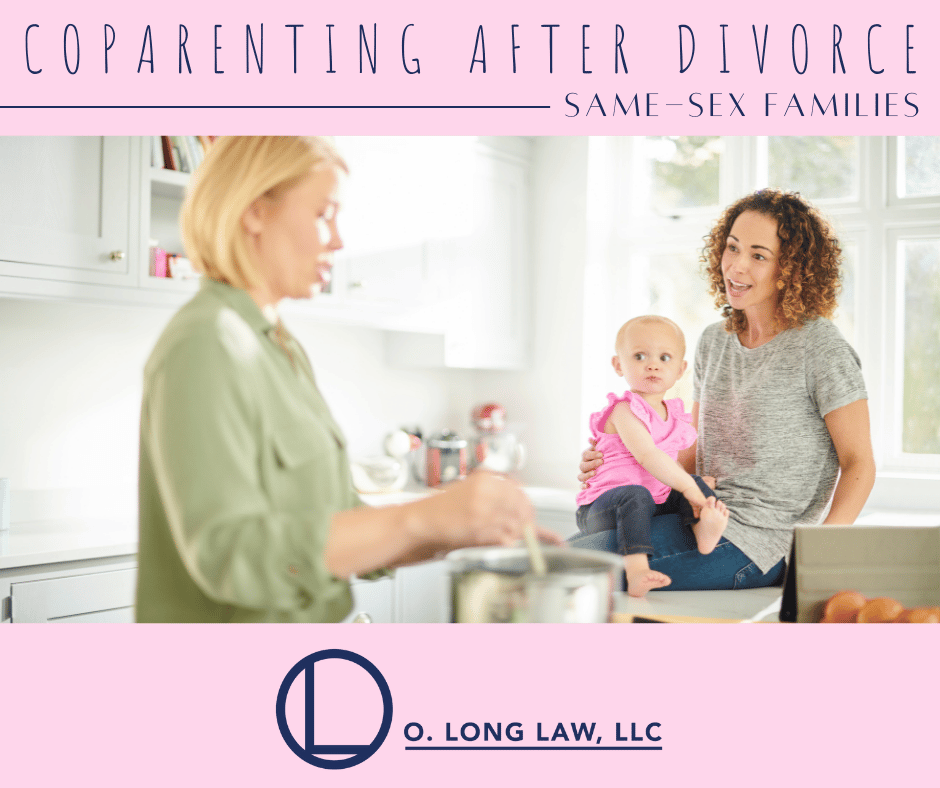Category: LGBTQ
6.7.25
Category: LGBTQ
Same-sex marriage was legalized in Illinois in 2013, a year before the Supreme Court federally legalized it. Not all marriages last, and divorce happens. One of the most common and confusing same-sex divorce issues is how to deal with Mother’s Day after divorce.
And, yes, we can understand why it can seem and even feel a little awkward for your first Mother’s Day as divorced parents. Think of it this way: although you’re no longer in a romantic relationship, you are still a family since you share children. Now, the goal is to establish a positive co-parenting relationship that helps your children grow up feeling loved and secure by both of you.
In this blog post, we’re going to explain more about:
This blog post is for educational and informational purposes only. It is not intended as a substitute for legal advice. If you have questions about same-sex divorce issues in the Chicago or Evanston area, schedule your free 30-minute consultation with O. Long Law now.
If you have other same-sex divorce and custody issues and are in the Chicago or Evanston area, schedule your free consultation with O. Long Law. We’re LGBTQ+ owned. We truly understand the unique needs and issues of our clients.
We look forward to working with you.

One of the unique same-sex divorce issues lies in a child’s parentage. In heterosexual marriage, it is presumed that any child born during the marriage is a biological child of the marriage. In a same-sex marriage in Illinois, there is generally one biological parent. For the other parent to receive legal parenting rights, a second-parent adoption must occur during the marriage. If it doesn’t, then the biological parent has no legal obligation to share custody of the child with their former spouse. Of course, they may want to consider the emotional bond between their child and the former spouse.
For the purposes of this blog, we will presume that a second-parent adoption occurred. We are also assuming that a finalized parenting plan is in place. Our conclusive presumption is that the relationship between the adults is not abusive.
For heterosexual couples, handling Mother’s Day after divorce and Father’s Day is often at least thought of as a little more straightforward. Parenting plans commonly state that mom spends time with the children on Mother’s Day and dad spends time with the children on Father’s Day. While that makes sense, it raises an important question about same-sex divorce issues. What about when there are two moms or two dads?
Well, it turns out that the answer can be much more straightforward than it may seem. No, it has nothing to do with one parent having the children on even years and the other parent having the children on odd years. The simple answer is that the two share the day with the children. This could mean they do something with the children to celebrate Mother’s Day together. It could be brunch, dinner, a cookout, or anything that helps the children feel bonded to both parents. The same also works for Father’s Day.
Birthdays for the children and the parents aren’t handled in the same manner, although if both parents get along, there’s no reason a family celebration can’t be held. In fact, that would be a wonderful experience for the children. Generally, though, the parenting plan addresses the birthdays of the parents and the children to prevent any issues. Each parent is allowed to see their children on the parent’s birthday. The schedule for the children’s birthdays is generally switched between the parents based on the year. On odd-numbered years, one parent will have the children for their birthdays, and on even-numbered years, the other parent will have the children for their birthdays.
Here at O. Long Law, we know that your first Mother’s Day after divorce can be challenging. Should you tell your ex happy Mother’s Day? Remember that your former spouse may no longer be someone you’re romantically involved with, but they are your co-parent. You still should set a good role model for your children. So, even if it may not be reciprocated, it is a wonderful gesture to tell your former spouse happy Mother’s Day.
You and your former spouse can create new traditions to celebrate Mother’s Day after divorce. So, what are some simple traditions that you can start as a family? Celebrate all of the mothers and mother figures in your lives. Take time to visit grandmothers, aunts, cousins, and other pivotal female figures. Make cards and gifts together to deliver. Help your children pick out Mother’s Day cards for others. Spend the day together volunteering at a women’s shelter.
There are so many wonderful things that you can do together as a family to celebrate such a special day. Work together to figure out what works best for your family!
If you need help with same-sex divorce issues, O. Long Law is here to help. As an LGBTQ+-owned law firm, we understand our community’s specific issues. This is so important so that you have legal counsel you can trust to truly empathize and understand. Schedule your free 30-minute consultation now.
Category: LGBTQ
5.20.25